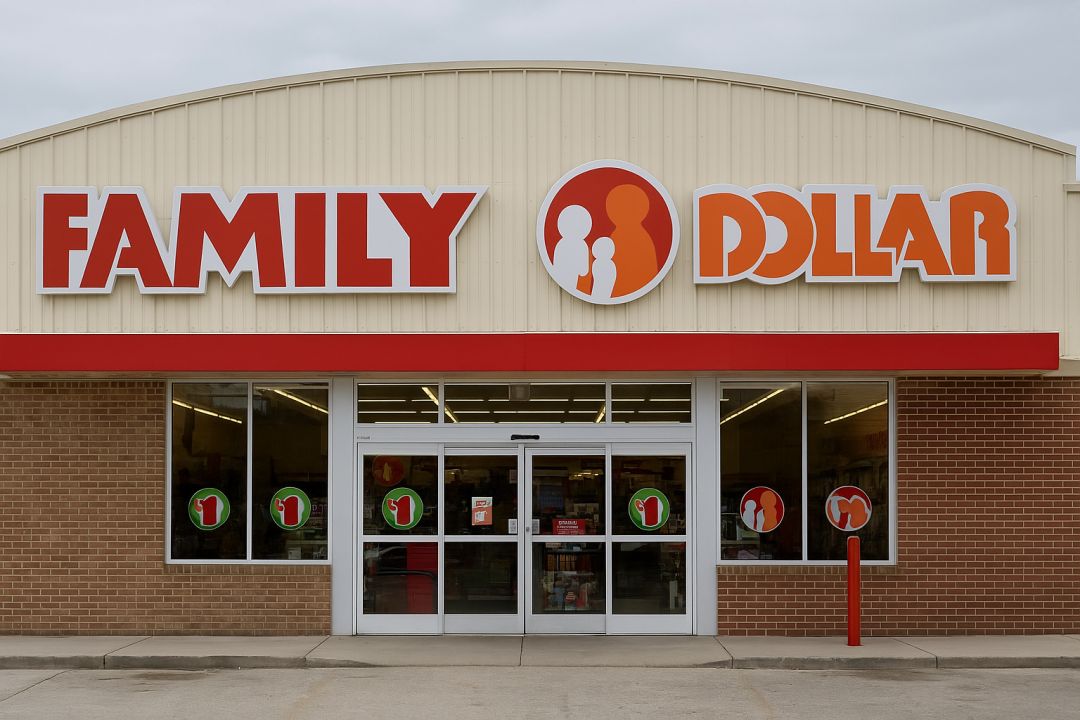Dollar Tree is cutting ties with Family Dollar after a decade of underperformance, selling the chain to two private equity firms for $1 billion—a sharp markdown from its $8.5 billion acquisition in 2015.


A Costly Misstep Comes to an End
Dollar Tree Inc. announced the sale of Family Dollar to Brigade Capital Management and Macellum Capital Management, formally ending a long and costly effort to integrate the two discount retailers.
“Dollar Tree bit off far more than it could chew,” said Neil Saunders, managing director at GlobalData. “Poor locations, supply chain struggles, and operational mismatches made the acquisition difficult from the start.”
The transaction, expected to close in Q2 2025, will allow Dollar Tree to refocus on its core brand, which has consistently outperformed Family Dollar in both profitability and customer loyalty.
Impact on Low-Income Shoppers
Family Dollar’s stores, often located in underserved urban areas, have played a vital role in providing affordable household goods. Ongoing closures and potential changes under new ownership could hit these communities hardest.
“The lower-income consumer is losing a critical place to buy value products,” said Marshal Cohen of Circana. “Fewer options mean higher prices and less convenience.”
Family Dollar stores offer staples like laundry detergent, canned goods, and health products—items that may now become harder to access for many.
Dollar Tree Refocuses on Core Strategy
New CEO Mike Creedon described the sale as a “milestone” in Dollar Tree’s transformation, enabling the company to concentrate on its suburban stores and core customer base, which skews middle-income.
“We are seeing stronger demand from higher-income customers who view Dollar Tree as a cost-effective source for an expanding range of products,” Creedon said.
Dollar Tree locations—known for seasonal items, snacks, party goods, and $1.25 fixed-price items—are now positioned to target growth and efficiency without the burden of Family Dollar’s turnaround.
Tariff Headwinds Loom
The timing of the sale comes as Dollar Tree faces new tariffs on imports from China, Canada, and Mexico. Creedon said the company has taken steps to mitigate the expected $35–40 million monthly cost, including:
- Negotiating cost concessions
- Diversifying import sources
- Adjusting product assortment
Despite the added pressure, Dollar Tree’s stock has shown resilience, climbing 3% following the sale announcement.
Wall Street Reaction: Cautious Optimism
Analysts have largely welcomed the move, noting it frees up management focus and capital. Scot Ciccarelli of Truist Securities called it a chance to optimize the Dollar Tree brand.
Key Analyst Reactions:
- Wells Fargo: Upgraded target to $90.
- Evercore ISI: Raised to $85, “In-line”
- Guggenheim: Maintained “Buy,” adjusted target to $95
- Bernstein: Lowered target to $78, “Market Perform”
While the divestiture will reduce sales volume, analysts say it could boost Dollar Tree’s margins and long-term stability.
What’s Next for Family Dollar?
The new owners face a steep uphill battle. Analysts say Family Dollar must fix:
- Pricing issues
- Lack of brand loyalty
- A dated store experience
Family Dollar’s headquarters will remain in Chesapeake, Virginia, for now.
“The brand has value,” said Arun Sundaram of CFRA. “But it needs urgent operational overhauls to stay competitive in the discount space.”
Key Takeaways
- Dollar Tree sold Family Dollar for $1 billion, a major loss from its $8.5 billion acquisition.
- The move allows Dollar Tree to focus on suburban, middle-income shoppers.
- Low-income communities may face reduced access to affordable goods.
- Tariffs and inflation continue to challenge discount retailers in 2025.
- Analysts say the sale may reignite Dollar Tree’s growth by eliminating a long-standing drag on performance.

















